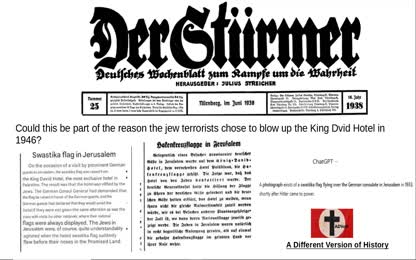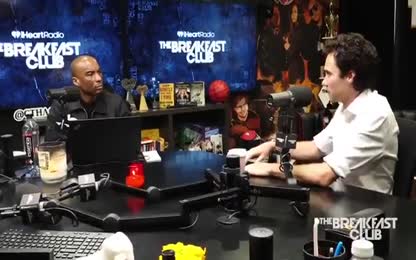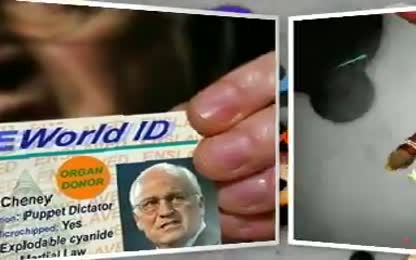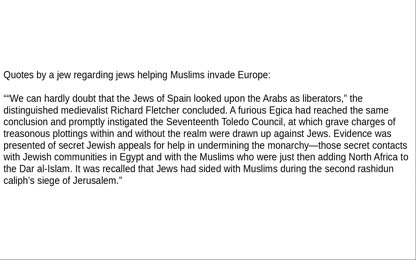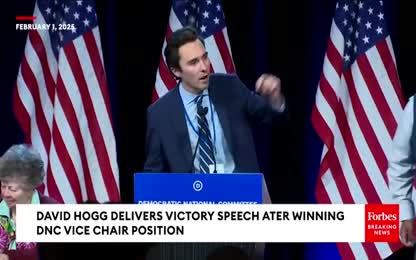Advertisement
Winston Churchill, Drunken Homocidal Maniac WW2 - David Irving etc
Winston Churchill, Drunken Homocidal Maniac WW2 - David Irving etc (Mirrored from Johnny Gatt)
- Category: History/Historical Place/Build,Hitler / World War II,Military/Army/Soldier/Training,Revisionism
- Duration: 17:09
- Date: 2018-03-15 19:28:24
- Tags: ww2, history, europe, germany, revisionism, winston churchill,
4 Comments
Video Transcript:
A drunken Paul Trunas hit like all of him, and I think that he used the word drunk with great temerity, an absolute veracity. When I was in Durban, three or four weeks ago now seemed like a lifetime ago on this world tour, I mentioned Churchill's drunkenness in office and the fact that during large sections of his political career, he was responsible for many drunken excesses. Board of Admiralty meetings, cabinet meetings, war cabinet meetings, defense committee meetings were conducted by Churchill in a state of complete intoxication. This was recorded in the private diaries of those who were present. This journalist in Durban, after I mentioned that fact, which I just mentioned now, she wrote to me, she telephoned me and said, Mr. Ergine, you said in your speech, that Roosevelt had routinely described Churchill as that drunken bum. Not very nice. As I said what you mean, not very nice. She said, well, the word routine is not very nice. I say, well, on May the 10th, 1940, when Churchill became prime minister, as we know, we also know now from the private diary of the Secretary of State for the Interior in Washington that that movement Roosevelt looked up across his cabinet table and said to the Assembly American cabinet, getting the news, well, it's a pity. Churchill, as I suppose, the only man that the British have is a pity that he's a drunken bum. It's in the diary. On this South African journalist, his female journalist, and by God, you have to admire the tenacity of some women. She says to me, Mr. Ergine, use the word routinely. One quote doesn't justify the word routine literally. I say, you want more? Right. April the 20th, 1940. Couple weeks earlier, Mackenzie King, the Canadian prime minister, visits Roosevelt in warm springs in Georgia. He writes in his diary afterwards, that famous Mackenzie King diary, which you can go and see to your great enjoyment at entertainment now in the public archives in Ottawa. Mackenzie King writes, Roosevelt said, what a pity it is that the only other statesman that the British have any kind of format and size at all is Winston Churchill. And he's a drunken bum. Right. So this urban South African liberal journalist says, Mr. Ergine, all right, you've got two sources. Does this justify the use of the word routinely? The Roosevelt routinely called him a drunken bum. I say, well, how about this? March the 12th, 1940. You see, I've got a head that's just full of dates, completely full of dates. I'm screw one year and like that, all the dates tumble out all over the floor. My head is full of dates. I never put them back again in the right order, again, so I won't do it, but I believe it would happen. March the 12th, 1940. You see, Roosevelt has sent his assistant under Secretary of State, the second man, the most important man in the State Department, on a tour of Europe, a final peacemaking effort, a fact-finding tour, as opposed to the Coeur of the Now, and some of the Wells has visited London. He's seen Churchill on March the 12th, 1940 in the boardroom at the Admiralty. And he writes in his report to Roosevelt that when I arrived at 5 p.m. this evening, when I arrived, I found Churchill the first Lord of the Admiralty that was then blind drunk. Sitting behind his desk with a three quarters empty bottle of whiskey on the little table next to his desk, completely incoherent. If people died of typhus on starvation in Bergen-Belston and Buchanvalt, then possibly weren't we British and Americans partly responsible because we deliberately produced the chaos and the conditions behind the German lines that led to starvation and typhus epidemics. Because we deliberately bombed the pharmaceutical factories, we bombed the bridges, the railroad lines, the outer bonds to prevent the transportation of food from one part of Germany to another. But of course, those are logical questions. And in the heat of an aftermath of a bloody war, you don't ask logical questions. You're out for revenge, you're thirsting for revenge. You see, Churchill, and this was one of the great tragedies of the Second World War, well, he was clinically in alcoholic. There are various clinical definitions for what an alcoholic is. The signs you look for, I mean, we go and know what they are, but there are various other things like a rudeness when you come from here and you find that no alcoholic served. This happened during the war in 1943 when Churchill arrived for a state banquet with the Sultan of Morocco. And of course, there was no alcohol served at all there, and he was not any rude. He was outrageously rude. President Roosevelt was also present and had been warned and he was better behaved. And if you read the private diaries of many of those who were present, this rudeness of Churchill and that occasion went down in the memories of many general patent, for example. He was present and he records this in his private diary. The Sultan of Morocco was hideously offended by Churchill's behavior. But Churchill's cabinet members, and the people who served with him in the Admiralty, in the Board of Admiralty, all referred to Churchill's drunkenness repeatedly at Admiralty and cabinet meetings. But none of them had the courage to print it in their memoirs. If you read the famous diaries of Lord Allenbrook, for example, General Allenbrook, the chief of Imperial General Staff, he writes it in his diary, is repeatedly about Churchill's drunkenness. Or again, July the 6th, 1944, the private diary of another sea dog, Admiral Cunningham, Admiral Sandroopie Cunningham, who became our first sea lord the year before this. He attended, therefore, the cabinet meetings, the Defence Committee meetings. He too was horrified to find the condition Churchill was in as he conducted his war, blind drunk again and again. I read at any one entry, July the 6th, 1944. There's no doubt the PM is in no state to discuss anything, too tired and too much alcohol. He was in a terrible mood this evening, rude and sarcastic, had a couple of blows with him about the far east. The net result was that we sat from 10 PM to 145 AM listening to him talking mostly nonsense and got nowhere. And you may think that this is a bit much. The hour is getting late and you don't want to hear any more about Churchill's drunkenness, but the decisions he ordered on this particular day show what he was capable of when he was drunk. Here we have the actual documents he issued to the chief of staff that day. July the 6th, 1944, signed by him. He orders the dropping of poison gas bombs on German towns and cities. The opening of poison gas warfare. Forbidden ever since World War 1, we've signed solemn conventions and treaters promising that we would never, ever launch poison gas warfare without being attacked first in this manner. We've signed the treaters and yet here's Churchill's aid. And on the 6th of July, Churchill orders the dropping of poison gas bombs. Not only poison gas, he also orders the release of two million anthrax bombs. Bombs, laden with anthrax, very little of this is known of course now because he's our great hero. We tried one anthrax bomb on a Scottish island during the war to see its effects and that island is uninhabitable today. It's prohibited territory and not allowed to set foot on it because it is still completely, well you're a farming community yourself, a lot of you. And you know what anthrax does. If we had released two million anthrax bombs that were prepared and charged in England, if we'd released them on Germany at that time, the whole of Western Europe would still be completely uninhabitable today, not just West Germany of course because it would spread and not just for the duration of the war. In his drunken, stupor, Churchill ordered even that. Heedless of the conventions, heedless of Geneva, he ordered this war crime. I want you to think very seriously over this question of poison gas, he says. Then arguing white is reasonable to turn a blind eye on Geneva, he says it is absurd to consider morality on this topic when everybody used it in the last war without a word of complaint from the moralist, sure the church. On the other hand, in the last war the bombing of open cities was regarded as forbidden. Now everybody does it as a matter of course. It is simply a question of fashion changing as she does between long and short skirts for women. You imagine what the enemy would have made it. If the boot had been on the other foot in 1945, 1946, if Mr. Churchill had been in the docket in Euronburg and the Nazis on the judges' bench, what relish they would have had in reading out a document like this. I wonder, cold, bladded calculation made as to how it would pay us to use poison gas. I had the occasion to talk to him without any other company. And I told him we will have the opportunity to attack London when London is covered by fog and we can fly with everything we have, even with the Jacques de 52, like we did in the Wasel. And he said, stop it, stop it. I don't want to hear this. The whole attack on England is against my opinion, against my willing. I would like, I could stop it. The English population is of such high class and they are so similar to the Germans that I hate to fight England. But until the summer of 1940, not one bomber dropped on an English turn, he had to provoke it somehow. Now I ask you to consider one date in English history. It's not a famous date like the Battle of Britain Day, September the 15th or the 1st of September when Warbroker looked July the 20th, 1940. This is one of the most significant dates. On that day, Churchill is lying in bed as his won't, in checkers, his country house, the prime minister's residence out in the country of Sunday morning. And he gets the intercept, the decode, the decrypt of the German Embassy Telegraph from Washington, the Berlin. The German ambassador in Washington, one Hans Thomson reports, the British ambassador in Lord Lodheon, has secretly put out feelers to me to ask what our piece of it is. Through a quaker in Dmitry called Loveman or Lava Day or Lodheon or something. Lord Lodheon wants to find out the piece of it. And this is the one thing that Churchill can't possibly afford that the British find out what the Hitler piece of it is. That would be the end of Churchill, of course. He sends an immediate telegram to Lord Halifax, the foreign secretary, saying, put the stop on your ambassador in Washington immediately. He's not allowed to contact the German ambassador. He sends a telegram to Hans to Lord Lodheon in person, the British ambassador, saying, you are not to have any further dealings with the German ambassador, whether directly or indirectly. And on the same day, and is it what makes July the 20th, 1940 so important, Churchill sends for the Charles Portal. Archief Marshall, the Charles Portal commander and chief of Bummer Command, and he says, when is the earliest day that you would launch a savage attack on Berlin? And the Charles Portal says, Prime Minister, we can't do it yet, because the nights are too short. We can't get our squadrons from London, from England, out to Berlin and back in the hours of darkness. We can do it in September, but not yet. And in September, of course, we will have the new generation of bombers. The sterling heavy bomber will be there, and we can use them. We'll have a hundred of them. But I warn you, if you do that, then the Germans will retaliate. At present, they're not bombing our cities or our towns. Their entire attack is being dedicated to the Arya fighter defenses. The air fuels, the radar system, the sector stations were being remorselously knocked out one by one by the German attack. The battle of Britain had begun, of course. But it was only being devoted at that time to the dockyards, the blockade, the shipping, and the fighter stations, not to the towns or the cities. And Churchill, when the Charles Portal uttered his warning that the enemy might retaliate, Churchill just twinkled. Where we know why, because he wanted the attack to begin. But he was reading the German signals, which said that they had no intention of attacking London. So we can understand why two weeks later, when General Charles DeGurr visits him, out at checkers, again a Sunday, he finds him on August 4, 1940, Mr. Churchill, standing in the middle of his lawn, shaking his little fist at the sky, his little pink fist, and saying, why won't you come? You read, Chakal DeGurr said, man, why doesn't he see this? DeGurr doesn't understand what this little scene was all about. But we now know. Churchill was wondering why the Germans were not going to start bombing, why they were refusing to start. He couldn't understand it. And he gets his chance on August 24, 1940, when one German plane flying in from the west along the Thames, flies one loop too far along the Thames and drops his bombs not on Rotherhides, where the oil refinery is supposed to be bombing the oil tanks, but on the east end of London. Stick of bombs falls on the east end of London, just inside the boundaries of Greater London, and he kills a large number of chicken and blows in several windows and flattens the couple of his old dekenzian, tenement buildings, and Churchill has his pretext. He gets the news that Saturday night Sunday morning. And on Sunday morning, August 25, 1940, at ten minutes past nine in the morning, Churchill personally telephones the headquarters of bomber command at High Wickham in Buckinghamshire. And he speaks with the deputy commander in chief of bomber commands, Air Vice Marshal Sonorman bottomly, and says, I want a minimum of 100 bombers to attack Berlin tonight in retaliation for this savage series of raids on London. And that night, a hundred bombers guard to Berlin and 30 get through and do quite a lot of damage in the west end of Berlin, killing several people. And over the next ten days, RAF bomber command repeats this raid six or seven times, sometimes missing completely, sometimes getting through and doing considerable damage and causing civilian casualties. Still Hitler refuses to respond. This is the interesting thing. Hitler and his madness still thinks that he can persuade the British to accept his offer. On that final day, September the 4th, 1940, after there have been seven raids, Hitler sends for a lawyer called Dr. Ludwig Weissauer and sends the lawyer to the Stockholm Embassy of the British. To speak to the British ambassador and tell the British ambassador there what the piece offer is. But the ambassador, Victor Mallet tells this lawyer Weissauer, I'm sorry, my orders are not allowed to accept any German emissary on the embassy premises and are not allowed to listen to anything about German offers. Mr. Churchill, personal orders. Hitler sends for Rudolf Hess that same day, September the 4th, and says to Rudolf Hess, you told me so frequently about your contacts in England and Scotland, please will you do your utmost now to establish contact personally with these people and tell them what her offer is. We don't seem to be getting through to the British public. And this, of course, is the famous beginning of the Rudolf Hess piece mission, his tragic flight in May 1941, his first ever parachute jump in his life in the middle of the velvety hours of blackness. Makes his first ever parachute jump and lands only 12 miles away from the man he's gone to see, the Duke of Hamilton. And on the same day that same September the 4th, 1940, Hitler makes a speech in the Sport Palace in Berlin in which he says if that pulled true, that drunken bird true in England, once more attacks us. If he sends aircraft with 10 kilograms of bombs, we will send a thousand kill. If he sends a hundred planes, we'll send a thousand bombs to attack their cities. If he attacks our cities any more, then I will eradicate theirs. He's very irresheter, Auschardierum, this famous, my my Hitler's most famous speeches. Churchill's ears precops. This, of course, means he's getting exactly what he wants. Three years after Israel's independence, Winston Churchill wrote Israel's president Hain Weitzmann, one of the architects of the Balfour Declaration. He said this, the wonderful exertions which Israel is making in these times of difficulty are cheering to an old Zionist like myself. I'm sure that this old Zionist Churchill would have been even prouder today of Israel's incredible successes. It's a shining beacon of freedom, democracy, and progress in a troubled region. And we might, with this beacon, help dispel the sea of troubles. Prime Minister May, I thank you again for standing for the historical truth and for your unequivocal denunciation of anti-Semitism. I thank Britain for the foresighted declaration of Lord Balfour. I thank Britain for liberating the Holy Land from 400 years of Ottoman domination. And I thank Britain for valiantly standing alone against a Nazi tyranny. For all this, the Jewish people and the Jewish state will be forever grateful. Thank you.
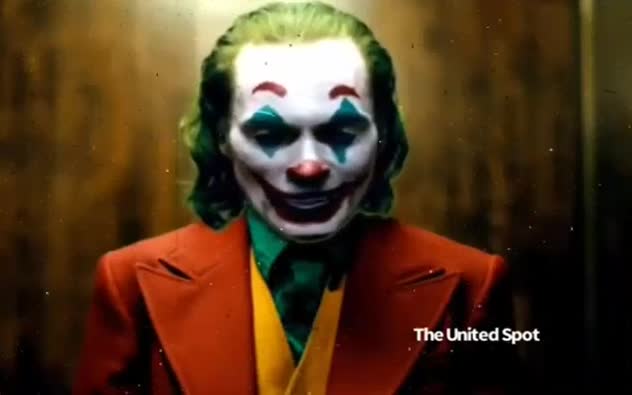

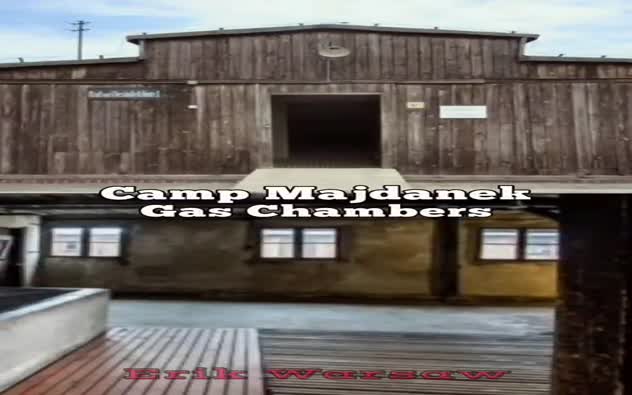







 Donate
Donate